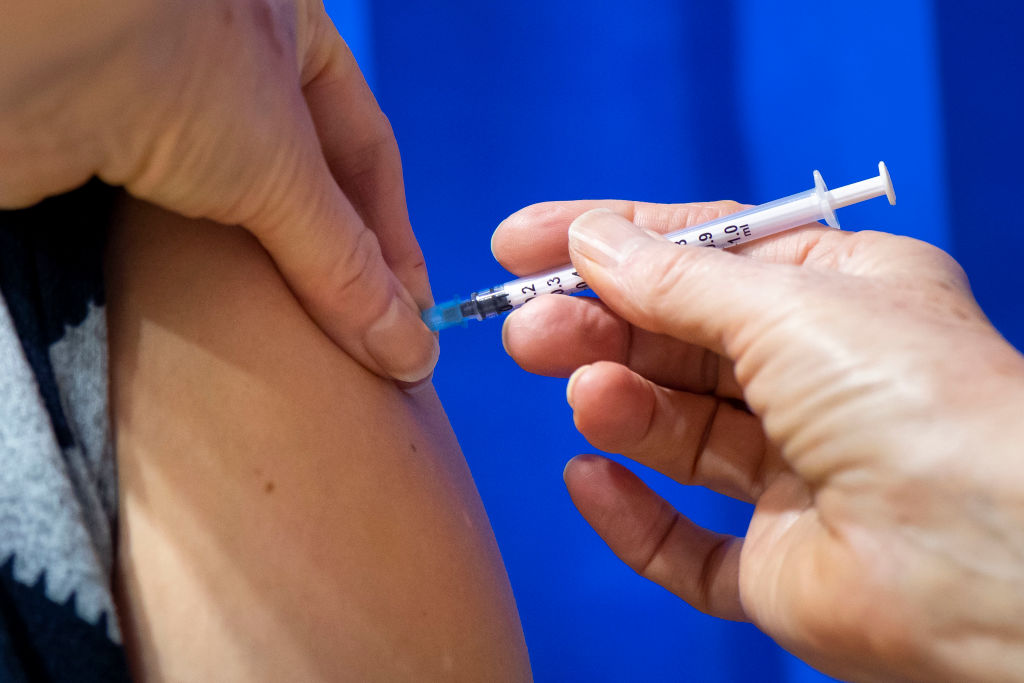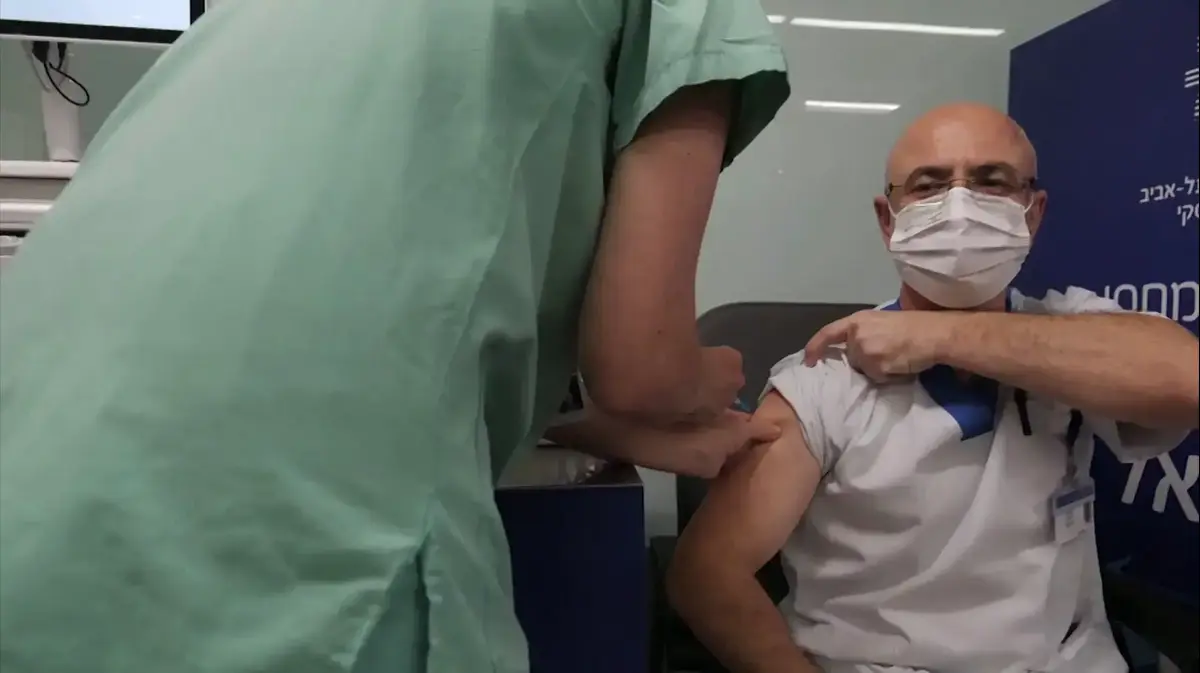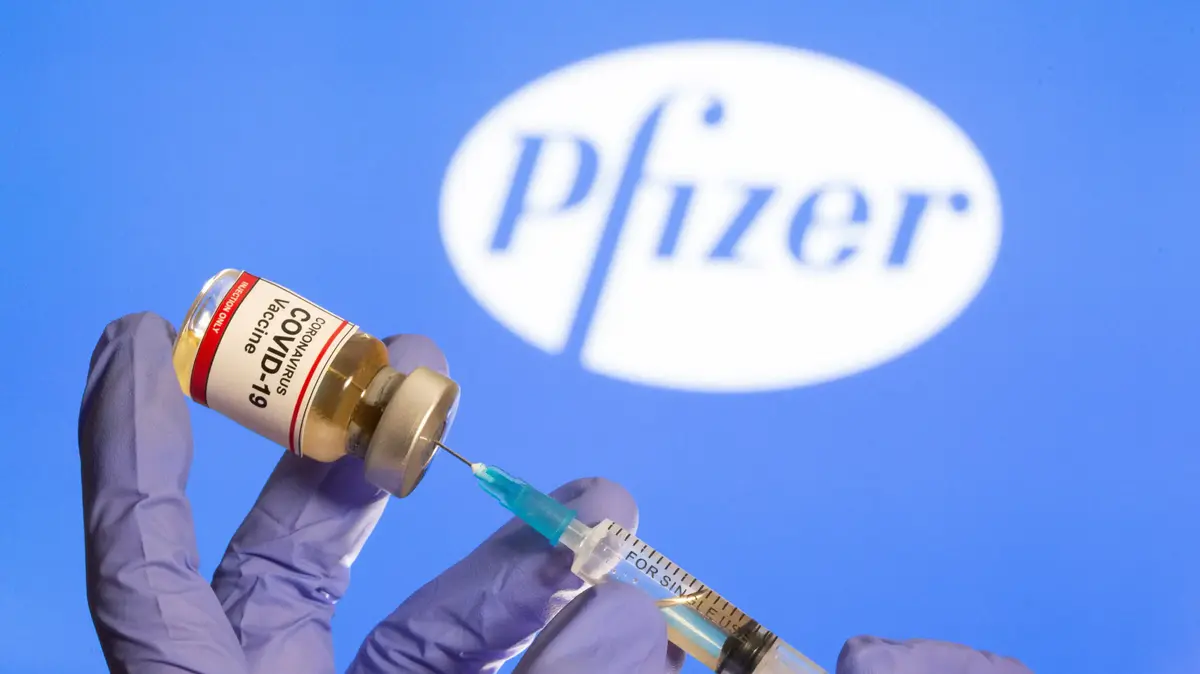This is how the FDA panel voted in favor of Pfizer's vaccine 5:35
(CNN Spanish) -
The Pfizer and BioNTech vaccine against the coronavirus surpassed an important step this Thursday, after a panel of vaccination advisers from the United States Food and Drug Administration (FDA for its acronym in English) recommended the authorization of emergency use of the vaccine.
We still have to wait for the FDA to accept the recommendation and say who in the United States will get the vaccine first.
In any case, what does this authorization mean?
Dr. Elmer Huerta explains it in this episode.
You can listen to this episode on Apple Podcasts, Spotify, or your favorite podcast platform, or read the transcript below.
Hello, I am Dr. Elmer Huerta and this is your daily dose of information on the new coronavirus.
Information that we hope will be useful to take care of your health and that of your family.
The news came from Washington, where 22 experts, a panel of FDA advisers, recommended emergency authorization of the vaccine from Pfizer and BioNTech.
Today we will see the repercussions that the use of the vaccine can have in the fight against the pandemic.
advertising
Pfizer announces the effectiveness of its vaccine
This flurry of good news began when in a press release published that day, the US pharmaceutical company Pfizer announced that its candidate vaccine, developed in partnership with the German biotechnology company BioNTech, had shown an effectiveness of more than 90%.
Later, Pfizer announced that a new analysis of its data showed that its vaccine had reached 95% effectiveness and that it was requesting an emergency use authorization from the FDA.
That same day, the FDA announced that a group of advisers, vaccine experts, would meet on December 10 to evaluate the application.
As that happened, the panel recommended with 17 votes in favor, four against and one abstention, the authorization of the emergency use of the Pfizer vaccine.
Now, the vaccine remains in the hands of the FDA, which will decide whether or not to accept that recommendation.
It is important to know that the 4 votes against were not due to any doubts about the efficacy or safety of the vaccine, but because those members do not agree that the vaccine should be administered to adolescents between 16 and 17 years old.
What happens to the Pfizer vaccine after clearance from the FDA?
The next step - after the FDA accepts the recommendation of its experts - is for the Advisory Committee on Immunization Practices of the Centers for Disease Control and Prevention of the United States (CDC) to meet within 48 hours of the FDA decision to finally decide who will be the first Americans to receive the vaccine.
The CDC committee will most likely reaffirm that the first to get vaccinated will be healthcare workers and residents of long-term care facilities.
Residents of long-term care facilities are those adults who live in places that provide a variety of services, including medical and personal care, to those who cannot live independently, such as nursing homes.
For their part, healthcare personnel encompass those paid and unpaid individuals who provide services in healthcare settings and who have the potential for direct or indirect exposure to the virus or infectious materials.
Who will get the Pfizer vaccine first?
These groups not only include health workers who care for patients, but also service workers such as food, laundry, cleaning, etc., which allow the health system to function.
Once this CDC step is passed, the first vaccinations are expected in the United States.
The significance of this decision is enormous, since it was announced that minutes after the recommendation of the FDA advisers was known, Pfizer was preparing to begin the distribution of 3 million doses of vaccines to various parts of the country.
Storage and distribution will not be easy.
As we saw in the December 7 episode, Pfizer's vaccine needs to be transported and stored at minus 70 degrees Celsius in its cold chain, and kept there until the point of vaccination.
The fact that the vaccine is authorized for emergency use does not mean that it is marketed.
This is a very important point for other countries.
What this authorization means is, firstly, that its use is restricted to the United States, and, secondly, its use still maintains its experimental character and is therefore subject to permanent evaluation.
Emergency clearance: what is the background?
Remember that - as happened with hydroxychloroquine - an emergency authorization can be revoked.
That drug was authorized in March and revoked in June.
This is because its risks were shown to outweigh its benefits.
In this regard, this point is important, as it was the fundamental question that the 22 members of the FDA advisory panel had to answer in order to authorize the vaccine.
In other words, given the scientific evidence presented, are the benefits greater than the risks?
This concept, that the benefits outweigh the risks, is very important in medicine, as it is not only valid for vaccines, but for any type of medical intervention, be it surgery, the use of a medicine or a device. .
When that precept is not fulfilled, what our grandmothers said when they affirmed that the remedy was worse than the disease happens.
What will happen after the application of the vaccine?
It is also important to understand that if the FDA decides to accept the advisors' recommendation, an important phase in vaccine development now begins.
This involves evaluating what happens when the vaccine is used in the real world, to call it use outside of a controlled clinical trial.
That implies that it is possible - as happened in the case of two volunteers who developed a severe allergic reaction to the vaccine in the UK - that new side effects will be discovered and their effectiveness in preventing infection will be reassessed.
Finally, we must understand that the vaccination campaign will be progressive and that it may last many months.
That is why, until other vaccines are approved and they do not reach a health center close to our home, we must all continue to take care of the infection.
For that, the use of a mask, maintaining physical distance and washing hands must be the main allies in the fight against the pandemic.
Do you have questions about the coronavirus?
Send me your questions on Twitter, we will try to answer them in our next episodes.
You can find me at @DrHuerta.
You see that we answer them.
If you think this podcast is useful, help others find it by rating and reviewing it on your favorite podcast app.
We will be back tomorrow so be sure to subscribe to get the latest episode on your account.
And for the most up-to-date information, you can always head over to CNNEspanol.com.
Thanks for your attention.
If you have any questions you can send them to Dr. Elmer Huerta via Twitter. You can also head over to CNNE.com/coronaviruspodcast for all episodes of our “Coronavirus: Reality vs. Reality” podcast. fiction".
BioNTechcoronaviruscovid-19PfizerCoronavirus Vaccine















